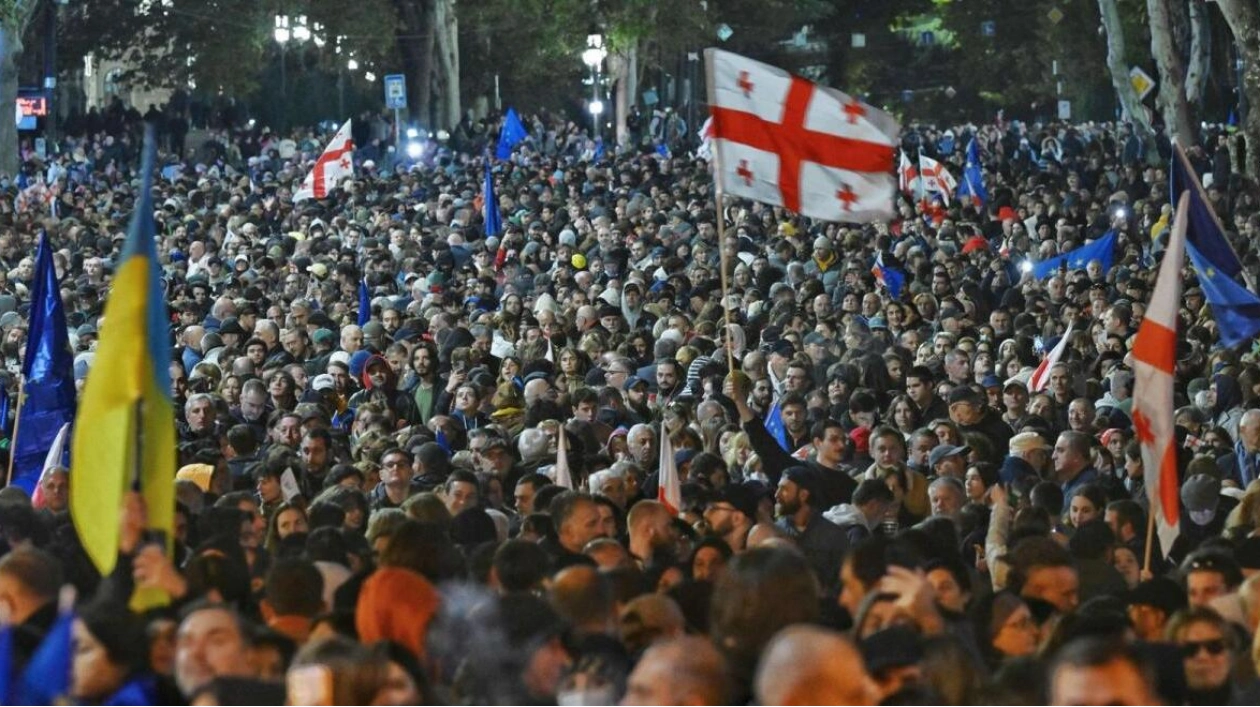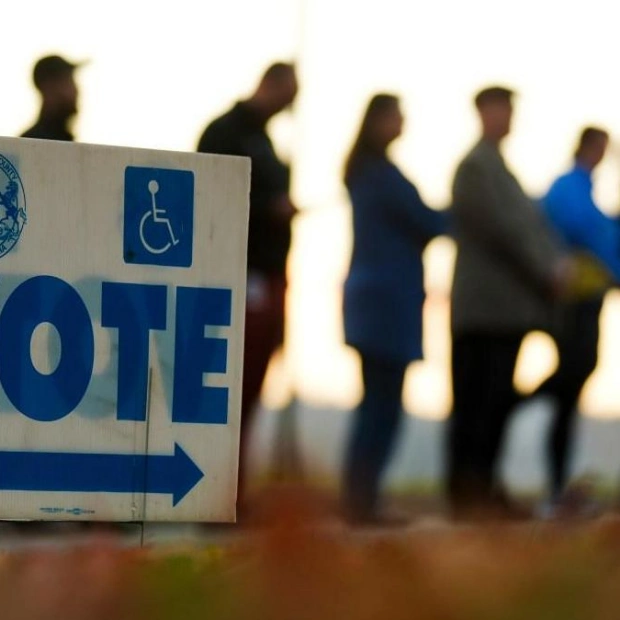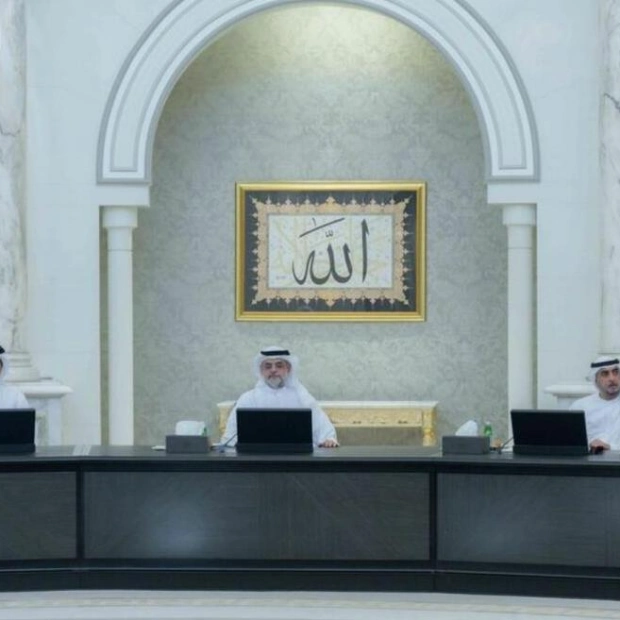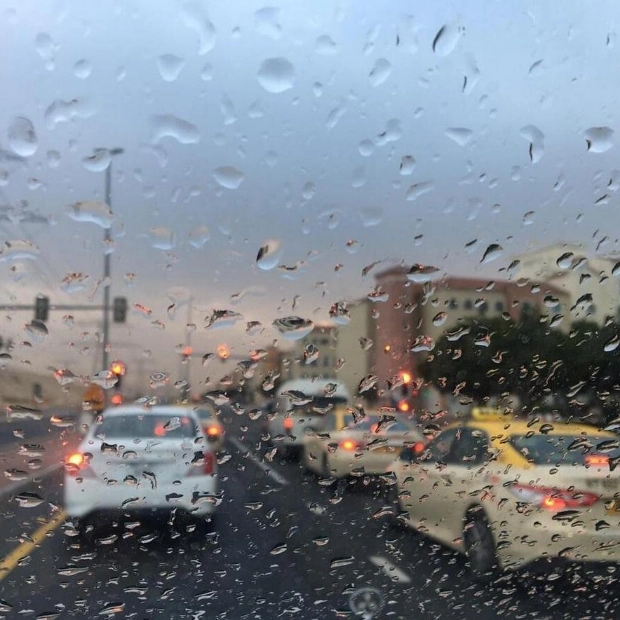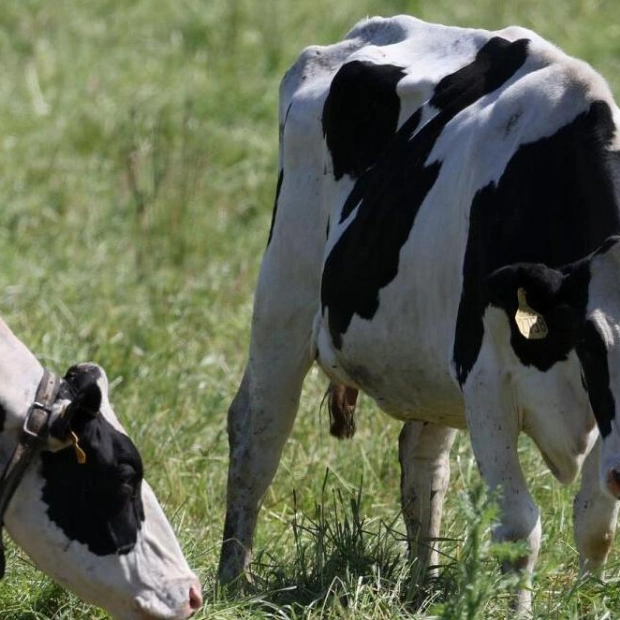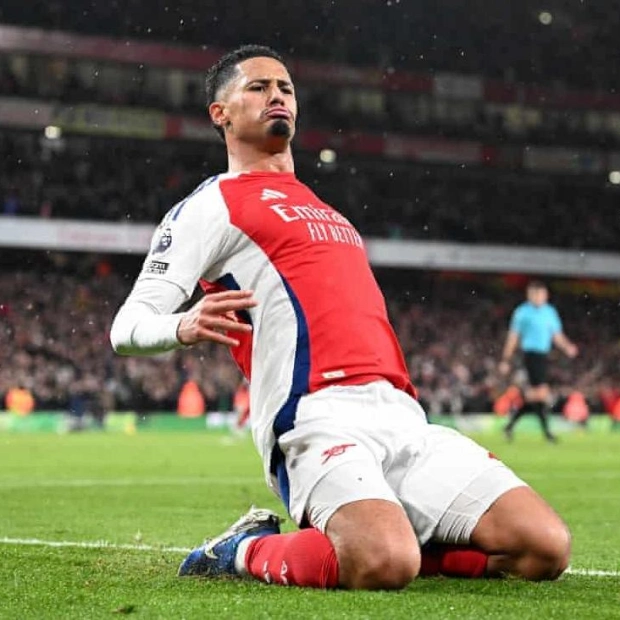Georgia's prime minister on Monday declared no negotiations with the country's opposition, as thousands of protesters filled the streets of Tbilisi to voice their discontent over the government's decision to postpone EU accession talks. The Black Sea nation has been in a state of unrest since the ruling Georgian Dream party claimed victory in the October 26 parliamentary elections, which the pro-European opposition deemed fraudulent.
Prime Minister Irakli Kobakhidze announced last week that Georgia would delay its EU accession talks until 2028, sparking widespread outrage and protests. Critics labeled the decision a 'betrayal' and a 'coup,' leading to violent clashes between demonstrators and police in the heart of Tbilisi.
On Monday, tens of thousands of protesters, waving both Georgian and EU flags, gathered outside the parliament building for the fifth straight day of demonstrations, according to AFP reporters. Despite the escalating tensions, Kobakhidze remained resolute, stating, 'No negotiations.' He accused the protests of being 'funded from abroad' and vowed that 'there will be no revolution in Georgia.'
Georgia's constitution mandates the country to pursue EU membership, and polls consistently show that 80 percent of Georgians support this goal. Although Kobakhidze maintains that joining the EU by 2030 remains his 'top priority,' protesters are incensed by the formal shelving of talks. He pledged to make 'maximum efforts' towards EU integration, despite ruling out negotiations for the next four years.
The demonstrators are supported by Georgia's pro-EU president, Salome Zurabishvili, who has vowed to remain in office until new elections, despite her term officially ending. She described the ongoing protests as 'another powerful night of Georgians standing firm to defend their constitution and their European choice.'
The opposition is boycotting the new parliament, and Zurabishvili has petitioned the constitutional court to invalidate the election results, deeming the new parliament and government 'illegitimate.' Critics accuse Georgian Dream of steering the country away from the EU and closer to Russia, a charge the party denies.
Russia defended Georgia's crackdown on protesters, with Kremlin spokesman Dmitry Peskov drawing a parallel to Ukraine's 2014 'Maidan' protest. Dozens have been injured in the protests, including demonstrators, police, and journalists, though exact numbers remain unclear. Authorities have responded with water cannons, tear gas, and rubber bullets.
Zurabishvili reported that detainees have been subjected to systematic beatings, with many suffering head and facial injuries. Levan Khabeishvili, leader of the opposition United National Movement party, claimed he was attacked by masked police but managed to escape with the help of protesters. The interior ministry reported 21 police injured and 224 people detained in the first four nights of protest.
Anti-government strikes also broke out at various companies and educational institutions, and several diplomats and ambassadors have criticized the suspension of the EU accession bid.
Source link: https://www.khaleejtimes.com
